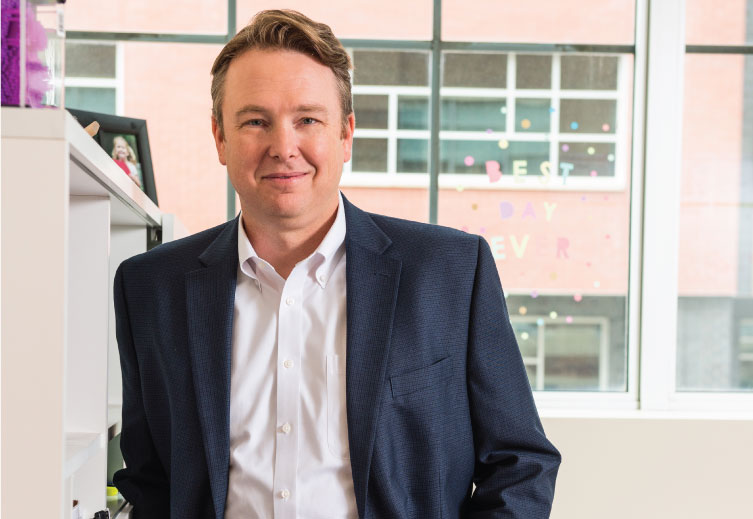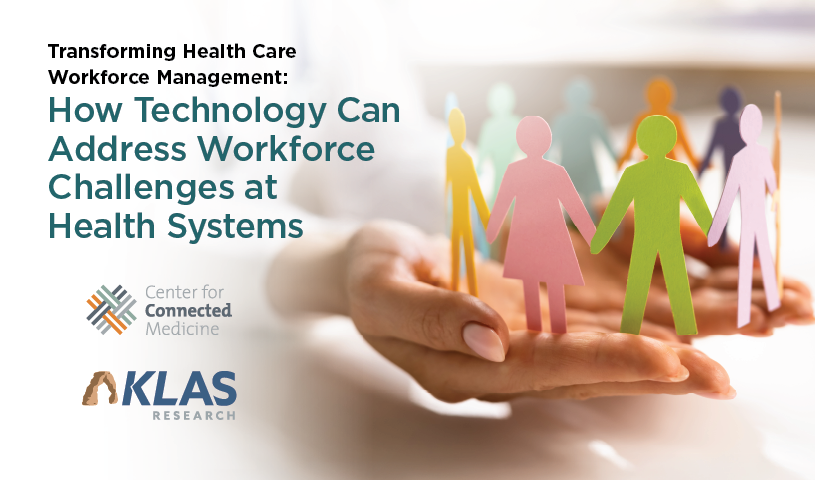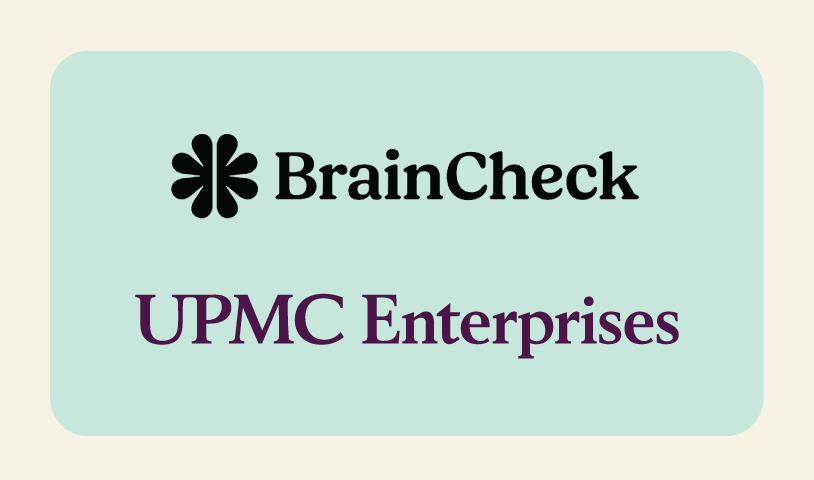Key management advice: Always aim to hire your next boss
Over the last two decades, Brent Burns has worked in the ever-changing technology and health space. As an executive at UPMC Enterprises, he draws upon his prior experiences every day.
Burns, who earned an MBA from Northwestern University’s Kellogg School of Management, joined UPMC Enterprises in 2015 as the innovation and commercialization arm of UPMC was forming. As executive vice president, Burns is one of the individuals who oversees Enterprises’ portfolio of companies focused on digital health solutions.

Prior to Enterprises, Burns spent four years at Anthem as the managing director for the HealthyCare Solutions business, where he focused on building Anthem’s diversified consumer business and developing the insurer’s payer and provider collaboration efforts. He also spent eight years with McKesson as a senior vice president for business development, product management, marketing, and strategy. Before McKesson, he worked in product management and marketing at Siebel Systems, Inc., which created the first customer relationship management software and was acquired by Oracle. Burns began his career in banking with Merrill Lynch in New York and Silicon Valley Bank in Palo Alto.
We sat down with Burns, who grew up in a small farming community in the Pacific Northwest, to discover more about his past experiences and current work at Enterprises.
What attracted you to UPMC Enterprises?
I had a vendor relationship with UPMC for several years, so I was very familiar with the organization and all the innovative things the system was doing as an integrated payer-provider. When I heard about the plans to form UPMC Enterprises, I saw a great opportunity to have an impact on health care with an organization that has all the pieces in place to be successful.
UPMC Enterprises really brings together the best of a tech incubator/product development accelerator, commercialization arm, and a venture firm. It has the leadership, talent, assets, shared services, the large and diverse UPMC system to run pilots in, and most importantly, a willingness to take longer term risks that very few innovation arms at health systems or public companies can match.
Pulling from your previous experiences, what has helped you at UPMC Enterprises?
I’ve been lucky to be able to pull from virtually all aspects of my career and translate those experiences into my work here as we vet opportunities and build companies. From my time in Silicon Valley and on Wall Street, I had great exposure to banking, investments, and sales, which is vital to my work with our younger portfolio companies. (Be sure to ask me about my missed opportunity with eBay).
At Siebel Systems, I learned about product management, integration, and marketing, which has been invaluable. At McKesson, I helped write the company’s corporate strategy, worked to create new businesses in the personalized medicine and payer space, and worked on payer-provider-pharmacy solutions. Although I worked for the payer side of Anthem’s business, one of my projects was to build out provider assets as well as the burgeoning consumer side of the business in the wake of the Affordable Care Act. Every day, I draw upon these past experiences in my work at Enterprises as we bring innovation to health care.
Is there a common set of problems that the portfolio companies you oversee are all trying to address?
Within the technology solutions focus area of UPMC Enterprises, we’re mainly searching for solutions and technology that help align the interests of payers in health care with frontline providers who are delivering care to patients. The payers — whether they’re the government through Medicare or Medicaid, or commercial insurers — are driving the focus on value-based care. Providers need solutions that allow them to meet those demands, whether its preventing readmissions with Vivify’s remote monitoring platform, or providing cost-effective specialty care in nursing homes with Curavi’s telemedicine platform.
The other thing that I think many of our companies share, which we have focused on more in recent years, is that to be successful, we’re finding they need to be more than technology companies. In order to work in health care, these companies need to be tech-enabled service providers. Take Health Fidelity, which has an amazing natural language processing engine for analyzing unstructured data, or RxAnte, which has a fantastic platform for analyzing prescription data and predicting patient compliance.
What all these companies are discovering, is that it’s not enough to simply sell a technology to a customer. They also need to provide end-to-end services for the customer to help them implement, gather all the relevant data, run the analytics, figure out what actions to take, and then help the customers take them. Health care is complex, and most customers don’t have the capacity to take on this additional work.
What are some of the best pieces of career advice you’ve received?
I have two pieces of advice that I try to follow. The first relates to the challenge of maintaining a work-life balance. I have an amazingly talented wife and three wonderful children (13, 10, 7), and they are as much a priority in my life as my career. I always question whether I’m striking the right balance, because if you stop asking yourself about giving enough at home and work, the balance can shift in favor of one or the other.
The other one relates to your team. I’m always trying to hire my next boss. Having that in mind when you’re building a team allows you to surround yourself with the kind of people who are going to lead your team to success.
What were some of your early jobs as a kid and what did you learn from the experience?
Growing up, I had the opportunity to work in a lumber mill, on a farm, with a landscaping crew, in a grocery store, and on a water well drill rig. Some of the more interesting and rewarding work was with my father and grandfather, who had a business digging water wells. One day, we would be in soft earth and could dig over a hundred feet, but the next day we could hit granite and only be able to dig a few feet. Through this experience, I learned that you have to keep going and find a way to persevere. It was hard, muddy work, and as a kid, I loved it. Frankly, I still do. By observing my father, I also learned a lot about communicating with customers. I draw upon these experiences every day, and perhaps the most valuable lesson I learned is that when I’m having a tough day, I imagine myself hitting granite in a well in the middle of winter.


